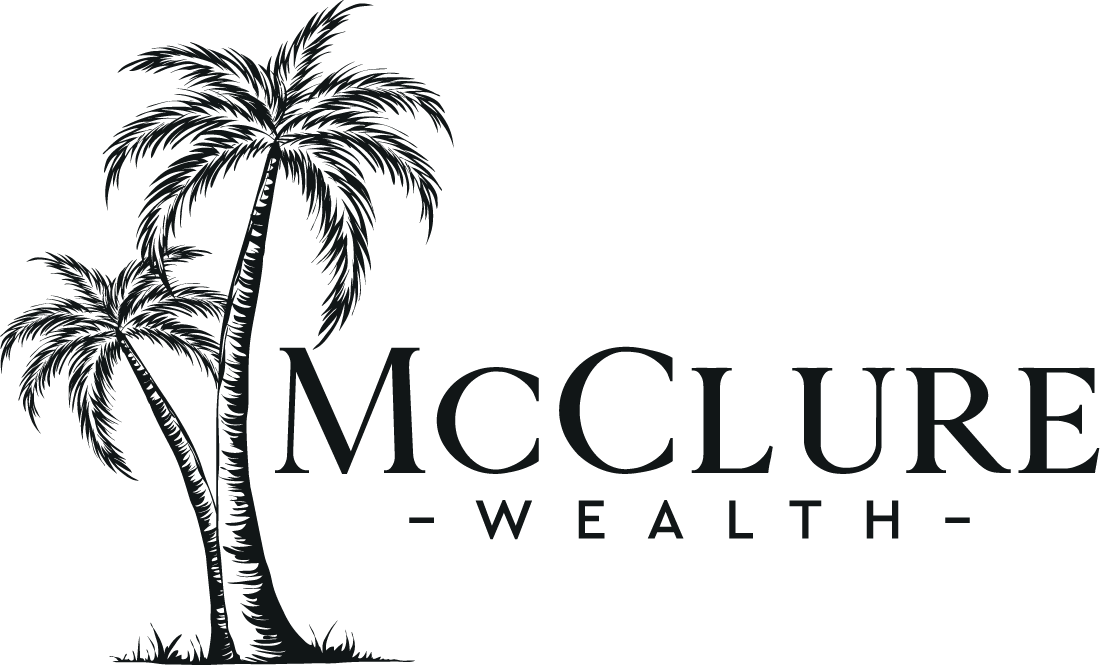By Ed McClure, CFP®, PPC®
Running a business is hard. You have to offer a valuable service, ensure your clients are happy, manage employees and vendors, and handle all financial and legal matters that arise. You also have to prepare for the unexpected. Most savvy business owners know that there will always be tough and surprising situations that slow down business, and they want to be prepared for that.
One prime example of this was the COVID-19 pandemic, which was an economic shock for virtually everyone, but especially business owners. So what do you do to prepare for the unexpected? Simple: have an ample amount of cash in reserves that you can deploy in an emergency to keep the business afloat while you right the ship.
As our economy and business have recovered, though, I’ve noticed something among my business owner clients: their cash reserves are growing far beyond what they actually need, sitting in savings accounts where the average interest rate is below 1%. This excess cash is causing many of them to lose out on interest they could be making if they had their money elsewhere.
Today, I want to share three strategies that you can utilize to earn more interest on your cash while still maintaining ample cash reserves.
U.S. Treasuries
A Treasury bill or note is a short-term obligation of the U.S. government for loans of one year or less. The government offers these loans so they can fund public projects like highways and schools, and in return they offer one of the most secure investments in the world. These bills are backed by the full faith and credit of the United States government, which guarantees that they will pay back your full principal and interest amounts.
One strategy to take advantage of this secure investment is to use your excess cash in a Treasury bill laddering strategy. Here’s how it works: You take your cash and invest it in Treasury bills with different maturities. For example, you can buy bills with 3-month, 6-month, 9-month, 12-month, and 15-month maturities. As of this writing, that would average about 4% interest annually.
Then, every quarter, you would always have some cash become available to you so that you could either reinvest in Treasuries or deploy for other purposes.
One recent example is a client of mine had $1 million in cash, and we used $500K of those funds to utilize this strategy. With a 4% interest rate, that $500K would yield $20,000 in just one year, far above what a savings account could yield while still avoiding the volatility and fluctuations of the stock market.
Buy Series I Bond
Another option backed by the U.S. government and offering rates well above the average savings account is a Series I Bond. A Series I Bond is a type of bond that is tied in part to inflation. Since inflation has been at 40-year highs, the interest this bond pays is also high. As of November 2022, the bond is currently yielding 6.89%.
There are some significant limitations, however. A person can only purchase a maximum of $10,000; but a business can also purchase an additional $10,000.
Additionally, I Bonds rates reset every 6 months, which means that if inflation lowers, the rate of interest you earn will also lower. I Bonds also require you to hold them for at least 12 months—after which you are able to recoup your principal and interest. However, if you cash in your I Bond before a 5-year holding period, you will forfeit your previous 3 months of interest.
While they come with more restrictions than a savings account or a Treasury Bill, they also currently offer higher interest rates than either of those two options.
Municipal Bonds
For a number of high-income earners, and especially successful business owners, one of their biggest pain points is the hefty amount of taxes they pay each year. That’s one of the reasons that municipal bonds are so attractive. These are bonds that help fund public projects, and in return, the government offers them free of federal tax, and free of state tax so long as the bond was issued in the same state. As of this writing, a high-quality 6-month bond might yield 2.5%.
The small downside to them is that they are not as liquid as Treasuries, although you can still sell them anytime you want. Additionally, the maturity length on them tends to be longer than Treasuries.
Before you purchase a municipal bond, be sure to evaluate the quality of the bond you’re purchasing, as there are different levels of quality available in the municipal bond marketplace. My recommendation is to stay in the higher-quality bonds where you can have more conviction that you will see the return of your principal and interest.
Want to Maximize Your Cash Savings?
Do you want to maximize your interest on your cash savings while still aligning your money with your financial goals? Now is a great time to consider alternative options for your cash, and I’d love to help. If you would like to discuss the right cash strategy for you and your business, let’s schedule a time to talk. Give me a call at (760) 607-0611 or email [email protected] to set up a consultation.
About Ed
Ed McClure is a CERTIFIED FINANCIAL PLANNER™ practitioner, Professional Plan Consultant® (PPC®), and founder of McClure Wealth Management. With over 25 years of experience, Ed works with business owners who want to maximize their retirement plan benefits, businesses that need help setting up and managing a 401(k) for their employees, and families who want guidance while planning their futures. He is known for simplifying complicated and intimidating topics and making wealth management concepts easy for others to remember and understand.
Ed has established himself as a trusted resource for business owners and individuals, and his mission is to help his clients achieve the financial independence and well-being they deserve so they can give their time and energy to the people and things they love. He has a bachelor’s degree in finance from the University of Illinois. In his spare time, Ed conducts financial workshops for the Just In Time for Foster Youth organization, which helps equip young men and women as they come out of the foster care system. He also loves to travel and spend time with his favorite people. To learn more about Ed, connect with him on LinkedIn.





